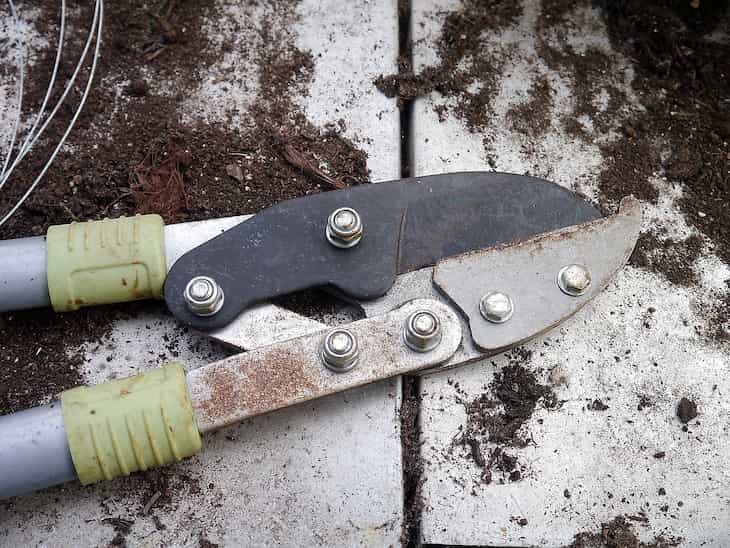Gardening tips: Sharpen your gardening tools correctly
To make gardening simple, safe, and enjoyable, you should always use sharp gardening tools – but how to keep them nice and sharp?
You have to sharpen your tools regularly, and you have to do it correctly, so you won't damage your tools or yourself.
Here are a few tips on how to do it.
Clean the tools
Before sharpening, make sure the tools are clean.
Wipe off any dirt or debris using a damp cloth or brush.

Secure the tool
Find a stable surface, like a workbench or table, where you can work comfortably.
Place the tool securely on the surface, making sure it doesn't move around while you're sharpening.
Use a file or sharpening stone
Depending on the tool, you can use either a file or a sharpening stone.
Hold the file or stone at an angle, about 20 degrees, against the edge of the tool.
Sharpen the edge
With firm but gentle pressure, move the file or stone along the edge of the tool in smooth, consistent motions.
Start from the base and work your way towards the tip.
Repeat this process a few times, checking the sharpness as you go.
Test the sharpness
Once you've sharpened the edge, carefully run your finger along it to check for sharpness.
Be cautious to avoid any accidental cuts.
If needed, continue sharpening until you achieve the desired sharpness.
Remove burrs
After sharpening, you may notice small metal burrs or rough edges.
Use a honing stone or fine-grit sandpaper to gently smooth them out, ensuring a clean and polished edge.
Clean and oil the tools
Once you're satisfied with the sharpness, wipe off any metal shavings or residue from the tool.
Apply a thin coat of oil to the blade or cutting edge to prevent rusting and keep it in good condition.
Store the tools properly
After sharpening, store your gardening tools in a clean and dry place.
This will help maintain their sharpness and prolong their lifespan.
Previously, we talked about growing loosestrife.
